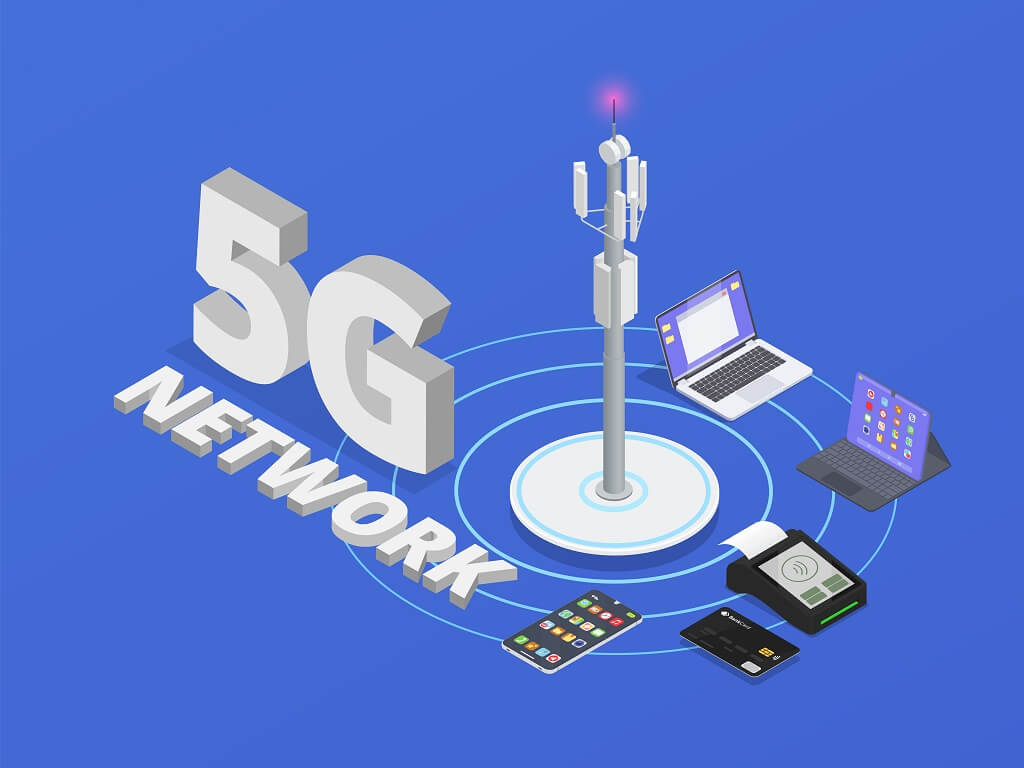Table of Contents
Introduction: The 5G Smart City Revolution
Imagine a city where traffic flows seamlessly, emergency services respond instantly, and public Wi-Fi outpaces your home connection. This vision is becoming reality with the integration of 5G technology in smart cities. By delivering ultra-fast connectivity and enabling real-time data sharing, 5G is set to revolutionize urban living.
Beyond smart cities, 5G technology is also transforming the electronics industry, driving innovations in chipsets, semiconductors, and IoT devices. Learn more about the impact of 5G on the electronics industry.

What is a Smart City?
A smart city leverages digital technologies to enhance the quality of life for its residents, optimize city operations, and promote sustainability. Key components include the Internet of Things (IoT), artificial intelligence (AI), and big data analytics. Integrating 5G amplifies these technologies, providing the robust infrastructure needed for seamless connectivity and real-time data processing.
How 5G is Revolutionizing Smart Cities
- Hyperconnectivity: 5G offers ultra-low latency and high-speed connections, facilitating seamless communication between devices.
- IoT and Automation: With 5G, smart grids, connected homes, and automated city services become more efficient and responsive. With 5G and the Internet of Things (IoT) working together, smart cities can automate critical functions like energy management, public safety, and healthcare. Discover how 5G and IoT create the ultimate connection.
- Edge Computing: Processing data closer to its source reduces network congestion and improves response times.
- Data-Driven Decision Making: Real-time analytics empower city planners to make informed decisions, enhancing urban management.
Applications of 5G in Smart Cities
| Application | How 5G Enhances It | Real-World Example |
|---|---|---|
| Smart Transportation | AI-powered traffic management, autonomous vehicles, real-time public transport tracking | Singapore’s 5G-based traffic optimization systems |
| Public Safety & Surveillance | Real-time HD video surveillance, AI-driven crime prevention, faster emergency response | South Korea’s 5G-powered law enforcement networks |
| Healthcare & Telemedicine | Remote patient monitoring, AI diagnostics, instant data sharing for ambulances. Discover how 5G is transforming healthcare. | China’s 5G-enabled smart ambulances |
| Energy Management & Sustainability | Smart grids, predictive maintenance, AI-driven energy optimization | Barcelona’s 5G-based energy conservation systems |
| Smart Homes & IoT Devices | Remote-controlled home automation, real-time security monitoring, energy-efficient appliances | USA’s 5G-powered IoT-based smart homes |
| Environmental Monitoring | Sensors tracking pollution, weather, and climate conditions for quick action | London’s 5G-enabled air quality monitoring system |
Challenges and Risks of Implementing 5G in Smart Cities
- Infrastructure Costs: Deploying 5G networks requires significant investment in new infrastructure.
- Data Security and Privacy Risks: Increased connectivity raises concerns about data breaches and personal privacy.
- Network Reliability and Coverage: Ensuring consistent 5G coverage, especially in densely populated areas, remains a challenge. While 5G offers immense benefits, it’s essential to understand how it differs from 4G technology in terms of speed, latency, and connectivity. Explore the key differences between 5G and 4G.
- Regulatory and Policy Challenges: Navigating government regulations and policies can impact the speed and extent of 5G deployment.
The Future of 5G in Smart Cities: What’s Next?
Emerging technologies like 6G and quantum computing promise even greater advancements. AI-driven 5G networks could lead to autonomous city management, with predictions suggesting significant evolution in smart cities by 2030.
Conclusion: Are We Ready for the 5G Smart City Era?
The integration of 5G technology in smart cities holds immense potential to enhance urban living. However, addressing challenges related to infrastructure, security, and regulation is crucial. Collaboration among city planners, policymakers, and technology providers is essential to fully realize the benefits of 5G in urban development.
FAQs
-
How does 5G improve smart city infrastructure?
5G enhances connectivity, enabling real-time data exchange for traffic management, healthcare, and energy efficiency.
-
What are the biggest challenges in implementing 5G in smart cities?
The main challenges include high infrastructure costs, cybersecurity concerns, and regulatory hurdles.
-
Which countries are leading in 5G smart city development?
Countries like China, South Korea, and the UK are pioneering smart city innovations powered by 5G.
-
How does 5G support sustainable urban development?
By enabling smart grids, optimizing energy usage, and reducing carbon emissions through efficient traffic management.